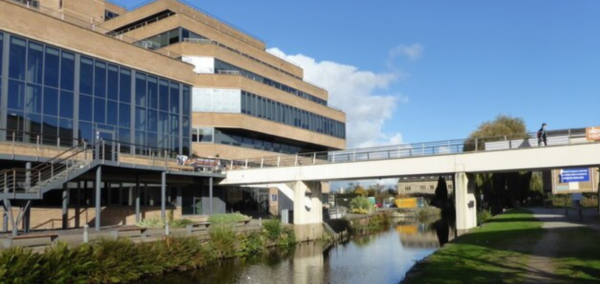
Students at Glasgow Caledonian launch boycott of uni’s multi-factor authentication system
The boycott has sparked mixed reactions among students and staff, with some expressing concerns about its practical impact on university operations
Students at Glasgow Caledonian University (GCU) have launched a boycott of the university’s multi-factor authentication (MFA) system, citing ethical concerns over its links to an Israeli-American tech firm, CyberArk.
The campaign, led by the university’s Palestine Solidarity Society (PSS), urges GCU to end its indirect relationship with the company, which they claim has connections to the Israel Defense Forces (IDF).
The controversy stems from a £1.4 million contract awarded last autumn to Computacenter, a UK-based IT provider that supplies GCU with CyberArk’s MFA software. This software is integral to the university’s cybersecurity, enabling secure access to platforms like the Celcat timetabling system and the Seats booking tool. However, campaigners argue that using CyberArk conflicts with the university’s ethos of promoting the “common good.”
Calls for a boycott
Beth, a PhD student and co-president of PSS, argued that CyberArk’s reported ties to the Israel Defense Forces (IDF) are incompatible with GCU’s stated mission to serve the “common good.”
“CyberArk is an Israeli company with strong ties to the IDF. We don’t believe this aligns with the university’s values,” she said. “Students and staff should have the right to make informed decisions about where their data is being handled.”
Ciaran, a Master’s student and PSS member, emphasised that the boycott targets the university’s use of the MFA system.
“We’re asking students not to use Celcat or Seats and urging lecturers to take manual attendance until an alternative is provided,” he said.
The PSS campaign has drawn attention to CyberArk’s Chief Information Officer, Omer Grossman, who served in the IDF for 25 years. PSS members claim that these connections raise ethical concerns, particularly in light of what they describe as the ongoing genocide in the Middle East.
Wider context
The boycott has sparked mixed reactions among students and staff, with some expressing concerns about its practical impact on university operations.
A lecturer, speaking anonymously, told the Glasgow Tab: “If manual attendance rolls are used, it might slow down classes and create confusion.”
Critics of the campaign have also raised concerns about the potential risks to data security, highlighting the essential role of robust cybersecurity systems in protecting sensitive information.
This controversy underscores the challenges universities face when global politics intersect with institutional operations. While PSS calls for ethical decision-making in procurement, the practical implications of disrupting systems like multi-factor authentication cannot be ignored.
Similar debates have emerged across Scotland. At the University of Glasgow, students recently protested the presence of Israeli-linked companies at a careers fair, while GCU’s Student Association has previously endorsed the Boycott, Divestment, and Sanctions (BDS) movement, calling for greater scrutiny of institutional partnerships.
As the boycott continues, GCU’s community must navigate the complex intersection of ethics and functionality, reflecting broader debates about the role of moral considerations in university procurement decisions.
University’s response
GCU has defended its relationship with Computacenter and the procurement of CyberArk software.
A GCU spokesperson said: “The University is bound by World Trade Organisation and UK Government procurement rules and is not legally permitted to discriminate in its procurement decisions on grounds of nationality, unless, of course, relevant WTO or other sanctions are in place against a country – which they are not in this case.”
The university also emphasised the importance of cybersecurity for safeguarding student and staff information. “The software has been in use for over a year, and we are committed to maintaining a secure digital environment.”
GCU expressed its willingness to engage with student concerns, noting that it had already met with PSS representatives. “We have reached out and met representatives of the group and are happy to continue our discussions with them. We have also written to our students and staff so they have accurate information upon which to reflect.
“We are of course supportive of our students’ right to peaceful protest and campaigning; as a University we welcome a diversity of views and believe everyone in our very broad and multicultural community should be treated with courtesy and respect.”
CyberArk has been contacted for comment.
























